Strategic ambitions
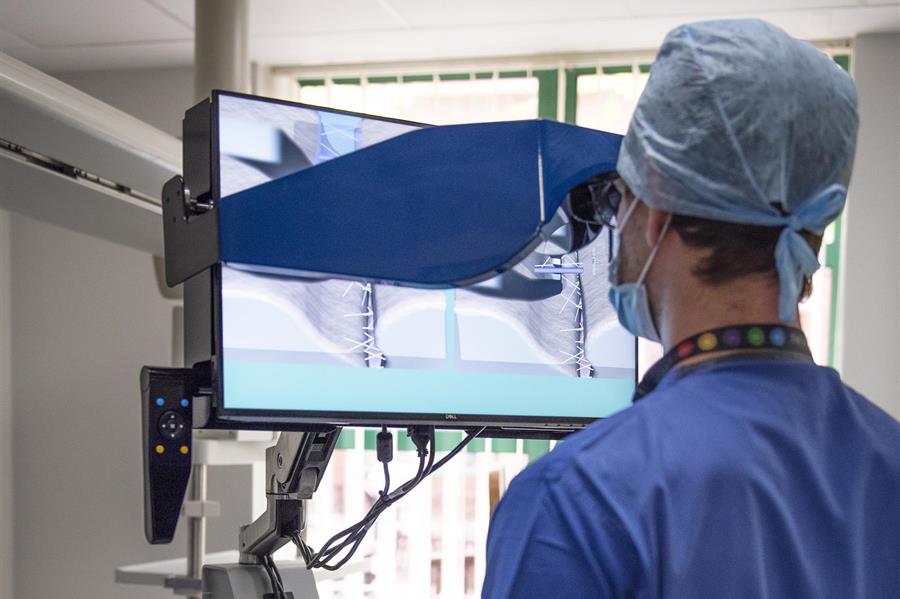
The strategy comprises five strategic ambitions which will enable us to continue to deliver world-class care to our patients and their families
Education, training and learning
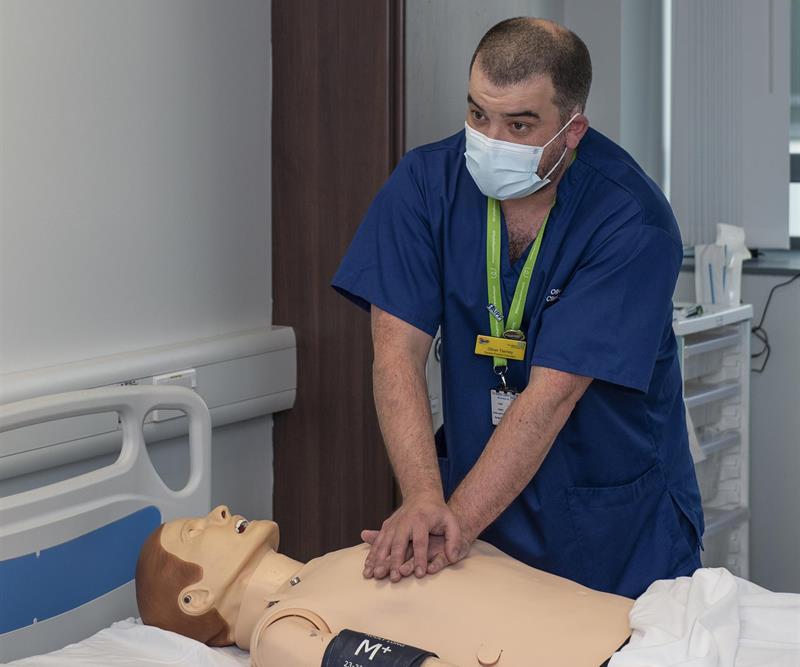
We are a national leader in neurosciences education and training, and aim to improve the quality of care for patients with neurological symptoms in all settings. We are one of the leading providers of medical education in neuroscience in the UK and beyond.
We have close links with universities in north west England and North Wales, and deliver training of the highest standard to the next generation of doctors, nurses and allied health professionals. Consistently excellent feedback is received from undergraduate medical students and in the General Medical Council (GMC) trainee survey.
Through our system leadership role in neurosciences, we will share our knowledge and expertise, and provide support to our colleagues. We will have closer clinical interaction with colleagues in the ICS, and will provide teaching sessions and learning packages. We will continue to be involved in regional neuroscience conferences and will share our expertise at national and international teaching courses and conferences.
Our staff are trained to the highest level using the most up-to-date techniques and innovations to enable the best outcomes for patients. We will expand national training opportunities in neurology including the Neuropodcases web resource and the NeuroPACES course for physicians in training.
Over the coming years, our spinal team will develop a national hub for training in innovative, minimally invasive robotic and endoscopic spinal surgery. We are the first NHS trust to invest in a virtual reality simulator for neurosurgical training. We will expand the training opportunities that this provides to regional neurosurgical trainees and deliver national training courses.
We will continue to provide training and further education opportunities, such as advanced modules in rehabilitation, developed in collaboration with local higher education institutions.
By investing in education and training, we will attract the best staff to work with us and ensure we have a workforce fit for the future.
How we will know we have succeeded
- Develop advanced training modules for non-medical staff jointly with higher education institutions
- Achieve year-on-year improvements in feedback in the GMC trainee survey
- Expand delivery of undergraduate medical education
- Establish national virtual reality training programme in neurosurgery and develop a national hub for training in robotic and endoscopic spinal surgery
- Lead and deliver a national neuroscience conference
- Develop non-medical consultant posts
Research and innovation
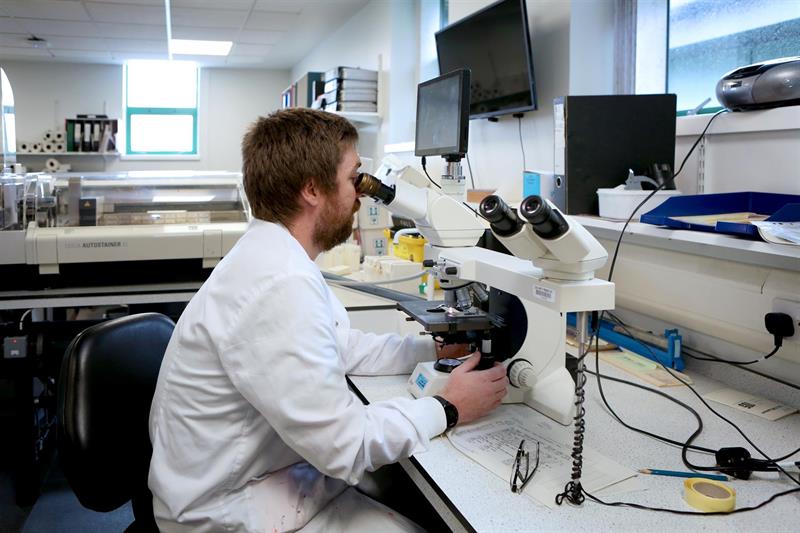
The Walton Centre has a proud tradition of delivering high-quality clinical neuroscience research, in collaboration with our local universities and commercial partners, to improve patient outcomes and experiences.
Our clinicians have research expertise in areas including epilepsy, neuroinflammatory disease, neurological infections, neuro-oncology, spinal disorders, pain and neurodegenerative disease. During the pandemic, clinicians from The Walton Centre led UK research into the neurological manifestations of COVID-19.
We will continue to focus on research to ensure that patients can benefit from evidence-based treatment and care, and the opportunities that participation in research brings
We will support our staff and provide opportunities for them to undertake research by developing areas of focus, based on the needs of the population we serve. We have excellent links with academic institutions and these will be strengthened further as we recruit to more combined academic posts for both medical and non-medical staff. We will work with universities to expand research in neurosciences and pain, with collaborations between clinicians and scientists.
We want to become a world-leading neurosciences research centre and will do this by developing a business model for research and development, and offering opportunities for reinvestment and growth.
We attract the most highly skilled and motivated people, who want to support our research and innovation ambitions. We will foster and develop a culture of innovation to enable our teams to improve services to patients through advanced technologies. All staff will be empowered to develop innovative solutions to any
issue they identify. Our culture will be one of openness, continual learning and curiosity for ways to improve our own practice.
How we will know we have succeeded
- Increase the number of active research studies from baseline by year-on-year
- Increase the number of research active clinical staff by 20%
- Increase the number of our patients offered the opportunity of participation in clinical trials by 20%
- Achieve formal recognition as a University Hospital
Leadership
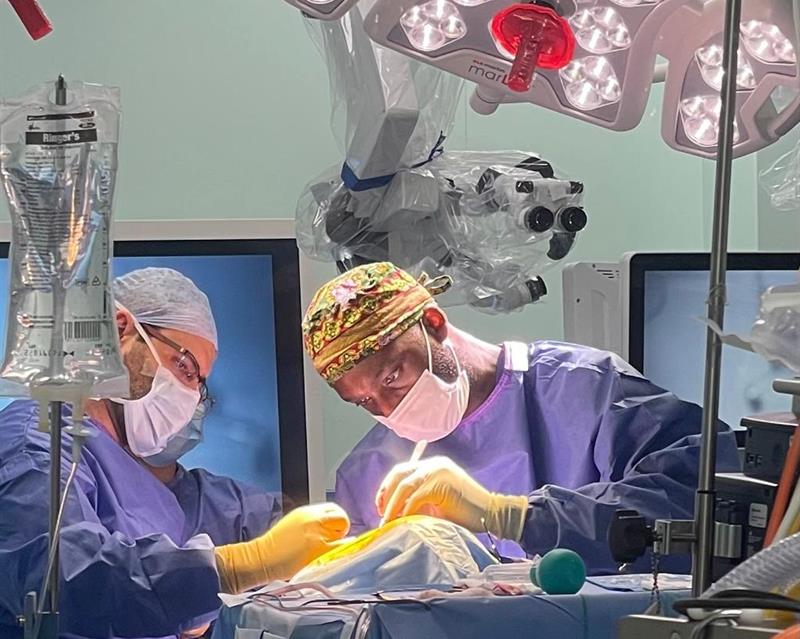
Clinical leadership is key to the successful delivery of high-quality patient care. Developing the right people with the right skills and the right values is a key priority to enable the sustainable delivery of health services, as leadership is one of the most influential factors in shaping an organisational culture.
Our aim is to develop clinical and non-clinical leaders who embrace change and lead through positivity. Our succession planning and talent management will ensure we have the right staff in the right roles, and that they personally develop as well as improve our services. Ensuring the necessary leadership behaviours, and personal qualities is fundamental to the organisation.
The Trust needs high-quality leaders at every level and in every area to ensure that it is able to deliver outstanding, compassionate care to the people it serves. Leaders come in many different forms and can operate at any level; leadership can bring about positive outcomes for staff and the organisation.
We are the first trust to become an affiliate member of the Faculty of Medical Leadership and Management (FMLM). We will develop this association, with specific input into leadership development, both medical and non-medical, and medical appraisal. We will continue to offer non-clinical leaders opportunities to develop.
We believe in a consistent and fair approach to leadership, which runs through the organisation and our Walton Way values.
We will lead on developing expertise in neurosciences in the region through our system leadership role and with greater involvement along the whole patient pathway, from the community through to secondary and tertiary care services.
We have developed pathways of care for common conditions such as headache, seizures and back pain. In association with patient groups, primary care and partner trusts, we will work to enhance care so that patients are managed in the correct setting, in a timelier manner, and only access specialist services when needed. Examples of current work in this area include the multiple sclerosis optimum pathway and the Parkinson’s Disease Excellence Framework.
How we will know we have succeeded
- Develop a clinical leadership programme with the Faculty of Medical Leadership and Management
- Lead on the development of clinical pathways regionally
- All staff in leadership roles will have the opportunity to complete an internal leadership programme
Collaboration
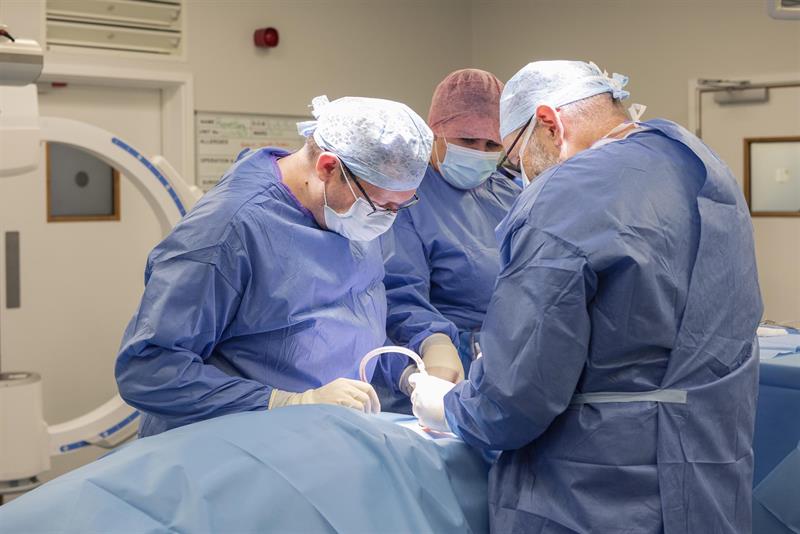
We have for many years had a wide geographical footprint, which enables care to be given closer to home. Our services cover the whole of the Cheshire and Merseyside ICS, but also beyond into North Wales, the Isle of Man and parts of Lancashire and Greater Manchester. We have therefore always collaborated with partners in the health system to improve patient care. Within the new ICS, we will further develop our clinical and non-clinical collaborations, which will build on existing services.
The Walton Centre plays a pivotal role in the region in addressing the challenge of unwarranted variation and ensuring quality of care. As the sole provider of neurosciences within Cheshire and Merseyside, we are committed to demonstrating to the Integrated Care Board how we can add value to the wider health system through positively impacting patient flow, length of stay and accident and emergency capacity. We will work closely with our acute partners, social care and voluntary groups to achieve this.
Neurology
We currently deliver the highest quality neuroscience services regionally. We will continue to build on our successful ‘hub and spoke’ model, which provides care closer to home for many patients. We will enhance this further by developing an acute neurology service with our external clinical partners, based on ‘Getting It Right First Time’ (GIRFT) recommendations.
The newly formed Rapid Access Neurology Assessment (RANA) service will be developed into a one-stop-shop service. This service will contribute to a significant reduction in inpatient bed days in our partner trusts, in addition to a reduction in investigations, both of which will result in savings for the wider system. Most importantly, patients with acute neurological conditions will be assessed and investigated by an appropriate specialist in a timely manner, which will improve patient outcomes and experience.
Stroke
We are the only neuroscience service in the north west to provide a 24/7 thrombectomy service for patients who have had a stroke. We will work with partners on the optimum pathways so that the best outcomes for patients can be achieved, which will be monitored through the regional multidisciplinary team.
We will increase the number of patients treated with this life-saving technique by 20%. We will continue to work to support the development of the North Mersey stroke pathway.
Rehabilitation
The Walton Centre has a unique complex rehabilitation service, supported by state-of-the-art facilities. We host the Cheshire and Merseyside Rehabilitation Network, an example of an existing collaborative network across providers. We aim to be the lead provider in this network and believe that we can work with our current partners and others to enhance rehabilitation further for all patients and to work in collaboration with the stroke rehabilitation services.
Pain
Chronic pain is a significant issue within our population and it severely impacts patients’ quality of life. Spend on prescription medication for pain in the region is high, which has been shown to be closely linked with social deprivation. However, there is significant variation in how easily patients can access pain services across our region. The Walton Centre has a successful track record of providing specialist pain services and is recognised as the regional service for complex pain. There is an opportunity for our ICS to reconfigure services to greatly improve care for the large proportion of the population who have chronic or complex pain.
In collaboration with our acute partners, we will lead on the Pan-Mersey pain programme to ensure that services are standardised and resources are used effectively. This will mean there is a more equitable service across our region, with a focus on non-medical interventions and subsequent reduction in spend on pain medication and attendances at accident and emergency departments. The aims of this service redesign are to improve patient outcomes and to have health economic benefits.
Neurosurgery/spinal surgery
We provide neurosurgical care for our population and attract referrals from further afield. We work collaboratively with our partners to ensure the highest quality, joined-up pathways for patients with brain conditions such as tumours, vascular abnormalities, infection and trauma.
The Walton Centre is now the only provider of spinal surgery services in Cheshire and Merseyside, following a review of the regional services, with input from GIRFT, to improve quality of care and reduce unwarranted variation. Our service is a joint neurosurgical/orthopaedic service and, for the first time in our region, spinal expertise across specialties has come together to provide a truly integrated service. This shared expertise will be used to improve patient-reported outcomes in degenerative, malignant and infective spinal disease.
Working closely with our community and acute providers on pathway development, will ensure that people with neurosurgical and spinal conditions receive the best care possible when needed, by the appropriate professional.
Within the three-year duration this strategy, by working collaboratively with partner organisations, we will:
- Reduce mean length of stay for patients with neurological conditions by two days
- Reduce admissions to acute trusts by 10% for patients with neurological symptoms by expanding the acute neurology model
- Increase the number of patients with acute stroke treated by thrombectomy by 20%
- Enhance care and experience for patients with spinal and neurosurgical conditions across the region by collaboratively developing pathways of best care
- Establish a new region-wide pain service with partners, to address equity of access and unwarranted variation
Social responsibility

Although The Walton Centre provides services for patients within and beyond Cheshire and Merseyside, we are anchored in the Liverpool City Region, and we want to support our local community further. Health and social care is the largest employer across Cheshire and Merseyside. By focusing on the wellbeing of our staff and committing to equality, diversity and inclusion, we are also supporting our local population.
There is significant variation in the population we serve in terms of deprivation and health. The 2020 Marmot Review highlighted that, nationally, health inequalities have grown in the last 10 years, and this particularly impacts the most deprived regions in the north of England. There is an urgent need to ensure all of our population have access to the best quality health and social care services. We will use data based on indices of multiple deprivation to analyse how our communities access our services, which will dictate where we need our focus so that we reach the most vulnerable and those who may not readily access the services they need.
It is well recognised that a number of neurological conditions may exacerbate health inequality as they can impact employment opportunities and independence. It is therefore vital that we understand the specific issues that people with neurological conditions can have by engaging with patient groups and addressing their needs in a personalised, holistic way.
The Cheshire and Merseyside ‘Prevention Pledge’ is a place-based approach to creating a sustainable and transformational shift in improving population health, exploring interventions and strategies relevant to local communities.
We will work with Liverpool Citizens, an alliance of active citizens and leaders from local institutions who are dedicated to working together for the common good.
In April 2022, the NHS adopted the Government’s Social Value Model, which measures the positive impact NHS providers and suppliers have on their local population. Further to signing up to the Cheshire and Merseyside Healthcare Partnership Social Value Charter, we have committed to achieving the Cheshire and Merseyside Healthcare Partnership ward and the Social Value Quality Mark.
We will support the ICS on ensuring the principles of social value, inclusivity and citizenship are realised by offering opportunities for support and employment. By 2025, through offering opportunities for support and employment we will significantly increase the number of apprenticeships. We will work with local schools to offer work experience to students from disadvantaged backgrounds, and to promote the Trust as an employer of choice.
We will continue to prioritise partnership working with Staffside and trade unions, to deliver genuine change that will improve the quality of life for our workforce. It is imperative that we provide care in a way that also protects our environment. We will develop a sustainability plan which will outline how we will reduce waste, reduce carbon emissions, and use our estate in the most energy efficient way.
How we will know we have succeeded
- Achieve the Cheshire and Merseyside Healthcare Partnership Award and the Social Value Quality Mark
- Implement Health Coaches for people with long-term conditions
- Make progress towards 80% reduction in NHS carbon footprint by 2028
- Through our sustainable procurement policy, develop partnerships with local companies
Page last updated: 14 September 2022